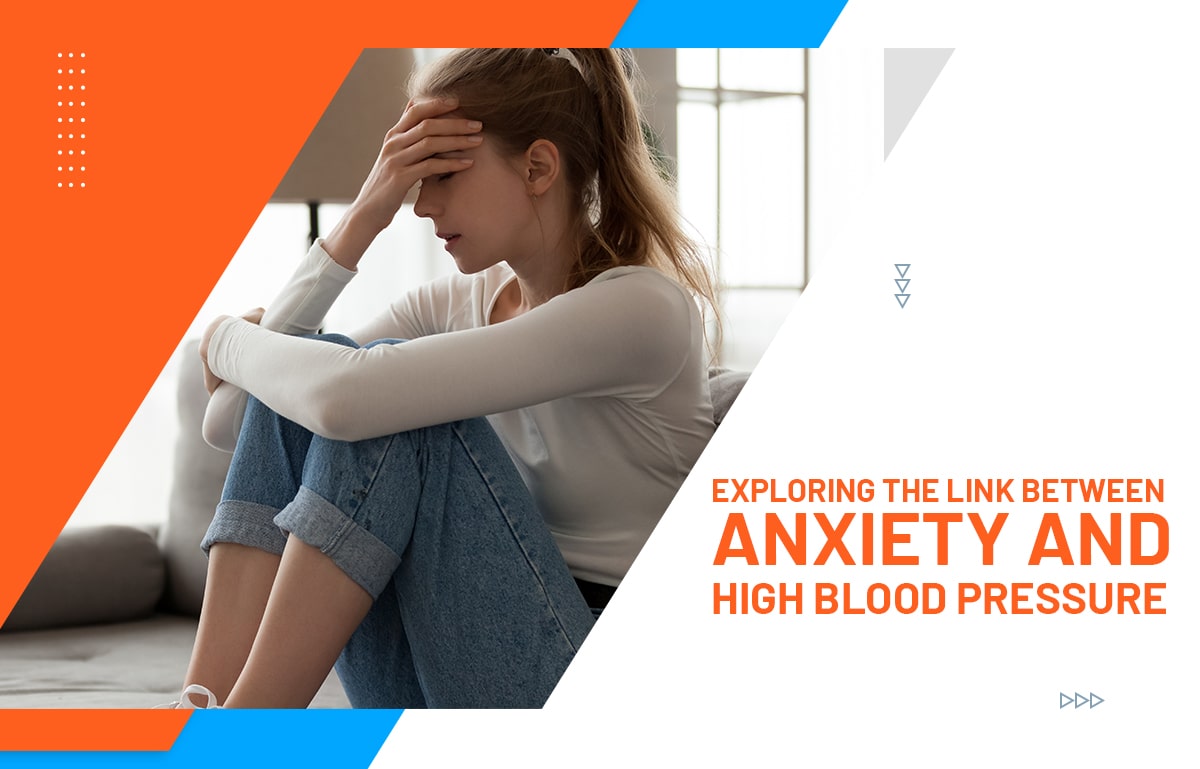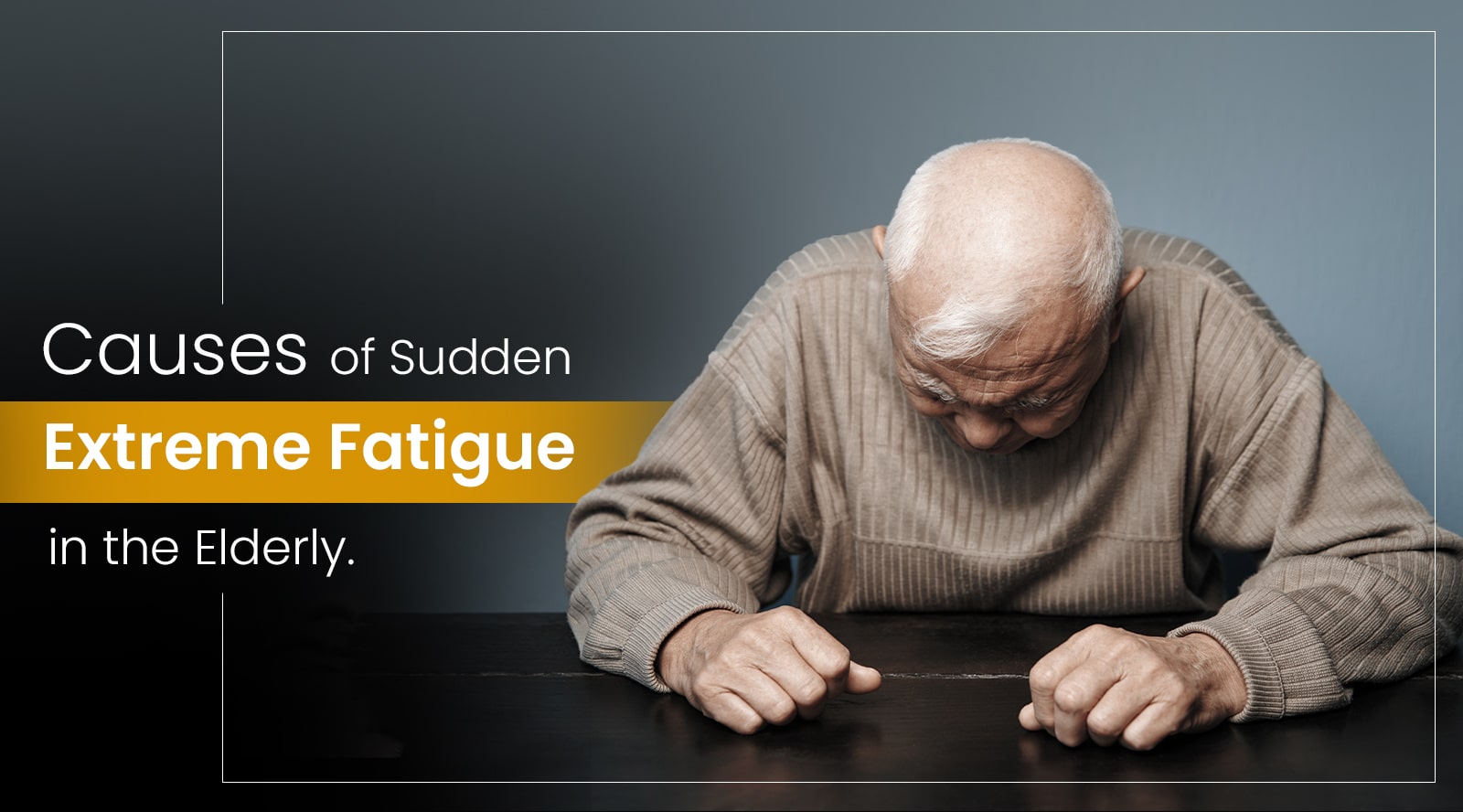
Anxiety disorders affect a good percentage of adults every year and cause a wide range of physical symptoms, including increase in the blood pressure. Though anxiety is not linked to extreme blood pressure, both short-term and chronic anxiety can cause your blood pressure to spike. You need to get regular health check up from the doctor and know if your high pressure is affecting anxiety disorder. Let us discuss the link between anxiety and high blood pressure and how to treat both the conditions.
Can anxiety lead to high blood pressure?
Fortunately, anxiety does not cause high blood pressure. But it can be the reason for short-term increase in blood pressure. When you start feeling anxious due to a stressful situation, the body enters fight-or-flight mode. This happens due to activation of your nervous system. During fight-or-flight mode, the levels of cortisol and adrenaline begin to rise, both of which can be the reason for increase in blood pressure. Though anxiety and stress can cause high pressure, it is just temporary and the levels will return to normal once you calm down.
About high blood pressure
High blood pressure or hypertension, is a severe condition which occurs when there is an increase in blood pressure level. Chronic high blood pressure can be really dangerous and lead to significant damage to your body, especially the brain, eyes, heart and kidneys.
Hypertension can be classified into two categories:
- Primary hypertension: This kind of hypertension usually develops in the absence of specific trigger and is the common type of hypertension. Primary hypertension is considered to develop due to environmental, genetic or lifestyle causes.
- Secondary hypertension: The cause of this hypertension is generally known and is another underlying condition. Secondary hypertension happens due to conditions that affect the heart, kidneys or thyroid.
Interestingly, anxiety can be the reason fort a kind of high blood pressure known as white coat hypertension. This type happens when the blood pressure is typically normal but spikes in a medical setting, such as doctor’s office due to medical anxiety.
About anxiety
Anxiety is natural response to observed threat and something all of us experience from time to time. When you feel nervous, you may experience thee symptoms:
- nervousness
- muscle twitches
- vomiting or nausea
- diarrhea
- poor concentration
- sweating
- numbness or tingling
- weakness or fatigue
- rapid heart rate
- hot flashes or chills
- restlessness
- difficulty breathing
- shaking or trembling
- chest pain
- derealisation or depersonalization
- panic or dread
- hyperventilation
There are people for whom extreme anxiety occurs due to underlying anxiety disorder than environmental causes. Anxiety disorders are the following:
- obsessive-compulsive disorder (OCD)
- panic disorder
- generalized anxiety
- specific phobias
- post-traumatic stress disorder (PTSD)
Can high blood pressure lead to anxiety?
Like anxiety causes temporary high blood pressure, having high pressure can be the reason for anxiety. For example, symptoms of high blood pressure imitate those caused due to anxiety such as:
- changes in vision
- shortness of breath
- dizziness
- chest pain
Experiencing these symptoms or others of high pressure can cause increase in anxiety. Apart from this, having a chronic condition like high pressure can cause anxiety and depression. People who suffer from chronic illnesses are more likely to experience mental health conditions like anxiety.
What can you do if your high pressure is related to anxiety?
If you suffer from high blood pressure often due to anxiety, then treating anxiety disorder may help to reduce your blood pressure to healthy levels.
Some treatment options include the following:
Psychotherapy
Cognitive behavioural therapy or CBT is an effective treatment for anxiety disorders. CBT methods may help to address and change problematic behaviours, feelings, and thoughts contributing to anxiety. Other treatment methods are taken into consideration based on the kind and severity of anxiety disorder. For example, exposure therapy is useful for treating specific phobias though trauma-focused therapy and interactive therapy like Eye Movement Desensitization and Reprocessing (EMDR) can help for conditions like PTSD.
Medications
A common medication for treating anxiety disorder is selective serotonin reuptake inhibitors or SSRIs. SSRIs work by increasing the acceptance of serotonin in the brain for decreasing the symptoms of anxiety. SSRIs are very effective when they are combined with psychotherapy. There are cases when benzodiazepines may be prescribed to offer short-term relief for anxiety symptoms. They are highly addictive and generally prescribed for short-term use only.
Other
Though psychotherapy and medications are effective methods for the treatment of anxiety disorders, lifestyle changes are equally important. Make sure you get sufficient sleep, eat a balanced diet and move your body physically. Relaxation methods include – massage, meditation and yoga to help with anxiety disorders.
Things you can do to feel less nervous
Whether you experience anxiety disorder or not, everyone can benefit from lessening their daily anxiety levels. Here are some changes you can make in your daily life to reduce anxiety levels:
- Eat a balanced diet: Eating healthy foods can support your physical and mental well-being. Try to fill your plate with whole foods such as vegetables, fruits, whole grains and lean proteins.
- Get sufficient sleep: Sleep is important for your overall health and getting enough sleep can create a big difference in daily anxiety levels. Most people need at least 7 to 9 hours of sleep each night.
- Move your body: Moving your body is important whether it involves weight training at the gym or taking a walk. Daily movement and exercise help increase your endorphins and decrease stress levels.
- Practice mindfulness: Mindfulness is the practice of creating awareness to the present moment and so, it is very important when you have anxiety. Meditation is a great mindfulness practice to decrease daily anxiety and stress.
Is it possible for anxiety treatment to affect your blood pressure?
There are certain medications to treat anxiety and lessen overall levels to reduce increase in blood pressure. But anxiety treatment options may cause an increase in blood pressure levels.
If you are having high pressure and have started taking medication to treat anxiety, then it is necessary to maintain a track of any changes in your blood pressure level. This can help the doctor to know whether any adjustments should be made to any of your medications.
Though anxiety do not lead to chronic hypertension, there is a correlation between anxiety and pressure. Anxiety causes a natural increase in the blood pressure due to fight-or-flight response and high blood pressure can sometimes be the reason for increase in anxiety. Thus, if you are experiencing any symptoms of anxiety or high pressure impacting your daily life, then book a private GP appointment at our clinic for a consultation and discuss about necessary treatment for your case.



-min.jpg)

